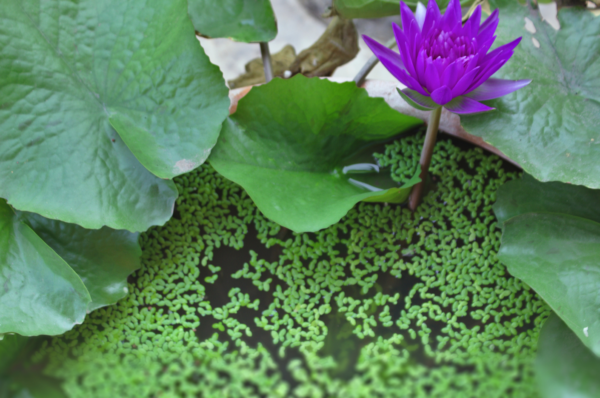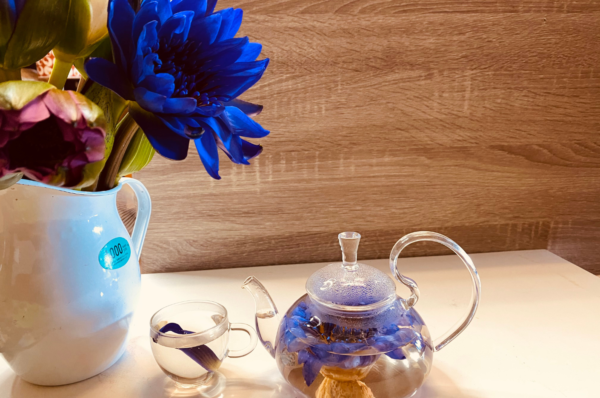The Legacy of Blue Lotus:
From the temples of ancient Egypt to the serene waters of Southeast Asia, the Blue Lotus Flower has enchanted cultures with its beauty and therapeutic allure. In ancient times, it was revered as a symbol of rebirth, enlightenment, and relaxation. Priests and pharaohs utilized the flower to induce serene states of mind, seeking its calming embrace to facilitate spiritual insight and restful nights.
The Science Behind Blue Lotus and Insomnia:
The Blue Lotus Flower’s efficacy in aiding insomnia is attributed to its rich composition of active compounds, including alkaloids like nuciferine and aporphine. These compounds interact with various neurotransmitters and receptors in the brain, leading to a sense of calm and tranquility. In turn, this can help reduce anxiety, stress, and racing thoughts, all common culprits contributing to sleep disturbances.
Promoting Relaxation and Reducing Stress:
Stress and anxiety are leading factors that disrupt sleep patterns, making it challenging for individuals to unwind and achieve a restful state. The Blue Lotus Flower’s calming effects offer a gentle pathway to relaxation, soothing the nervous system and promoting a sense of ease. By encouraging a more tranquil mental state, it may become easier to drift into slumber naturally.
A Natural Sedative and Sleep Aid:
Blue Lotus acts as a natural sedative, gently coaxing the mind and body towards sleep. When consumed as a tea or tincture before bedtime, its gentle effects may help regulate sleep-wake cycles and support deep, uninterrupted rest. Its potential to reduce sleep latency (the time it takes to fall asleep) and improve sleep duration has garnered attention as a promising sleep aid.
Enhancing Sleep Quality:
Beyond the ability to aid with falling asleep, Blue Lotus may also enhance sleep quality. By fostering a sense of serenity, it may lead to longer periods of uninterrupted sleep, allowing individuals to wake up feeling refreshed and rejuvenated.
Mindful Use and Precautions:
While Blue Lotus offers potential benefits for insomnia, it is essential to use it mindfully and responsibly. As with any natural remedy, individual responses may vary, and it is advisable to start with small doses to assess personal tolerance. Additionally, consulting with a healthcare professional before incorporating Blue Lotus into your bedtime routine is essential, especially if you have pre-existing medical conditions or are taking medications.
Conclusion:
In the quest for restorative sleep, the Blue Lotus Flower emerges as a timeless ally. Its legacy of tranquility and its potential to alleviate insomnia have captured the attention of both ancient civilizations and modern sleep seekers. As we continue to explore the natural world for remedies to improve well-being, the Blue Lotus Flower stands as a beacon of hope, offering a peaceful pathway to embrace the joys of slumber once more. Remember, a good night’s rest is not only a dream but a possibility, with the serenity of Blue Lotus by your side.





